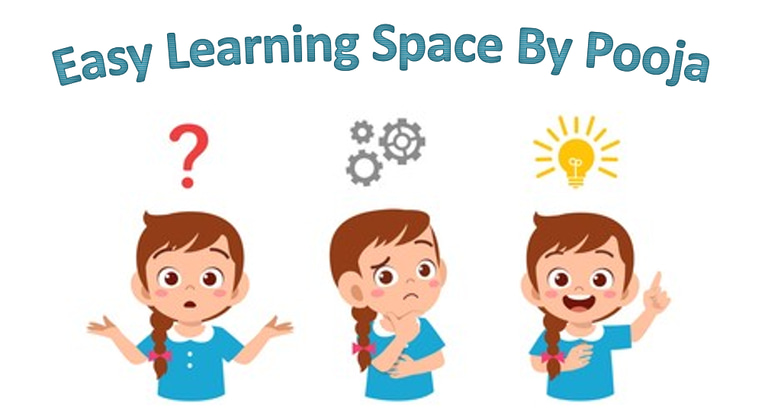AI in Education: How Personalized Learning Is Transforming Classrooms in 2025
Discover how AI in education is revolutionizing personalized learning, boosting student engagement, and shaping the future of classrooms in 2025.
PARENTS, TEACHERS, PARTNERS, EDUCATION, LEARNING, TEACHING, COLLABORATION
Pooja
8/20/20256 min read
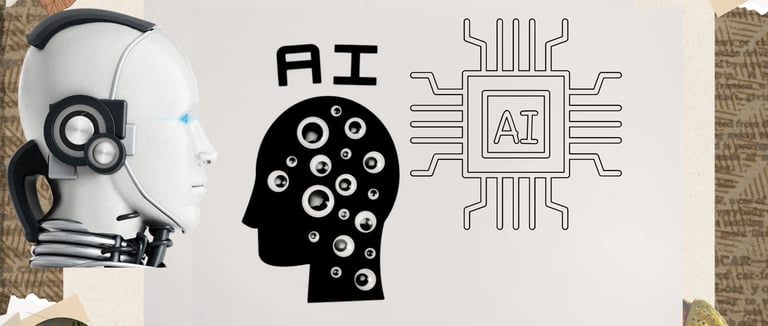

The most common word we have heard in 2025 is AI, artificial intelligence! In every professional space, meeting rooms and classrooms this word is taking over!
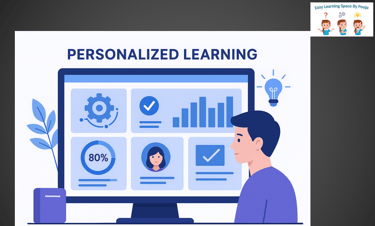
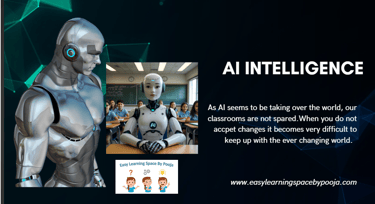
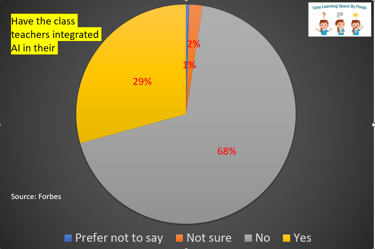



A New Era of Learning!
The year was 1999. I was in grade 7 and clearly remember this incident. Computers were newly introduced in our school. We had to enter a fancy, air-conditioned room, remove our shoes outside, and then enter the computer lab. All the students were so fascinated to learn about this new technology. Back in the day, the computers were huge and did not have coloured graphics. They were black and white. Yes, you read that right. Soon, there were numerous discussions, questions, and debates on this topic. Our English teacher announced that there would be a debate competition in our class that day. She gave the topic "Computers will rule the world in the future". Class will be divided into two groups. One group would speak "for" the topic, and another group would speak "against" the topic. I remember my whole class going completely silent.
Nobody among the students could fathom the thought of computers taking over the world. My teacher asked students to stand up and present their views. Everyone had something to say for the "against" part. They started discussing how this could never happen, it was not possible that computers would take over, it is just a small thing to play games and store data, and whatnot. Not a single student spoke "for" the topic. Like any pre-teen in those days, I wanted some brownie points from the teacher that day, so I stood up in the class, telling the teacher that I would be speaking "for" the topic. Everyone gave me a disgusted look. They wondered if I had any points to speak up. I was an expert in faking my confidence, hence I randomly argued and made points that day.
I don't think I was able to convince the class or my teacher that day (but I did get good reviews from my teacher for being "different"), but here we are in 2025, asking the very same question and, fortunately or unfortunately, agreeing to that statement made 26 years ago. Let's just agree that we have to always clarify that we are humans when we are logging in to so many applications. (Mother of all ironies). There is an old saying, "If you can't beat them, join them". Whether we like it or not, if we agree or disagree, our children are growing up in the lap of technology. They are not just born with a silver spoon, but with applications and technology at their beck and call (I am repeatedly saying "application" and not "apps" because I am old school, but play along).
Education is no longer confined to chalkboards, textbooks, and one-size-fits-all teaching. With the rise of Artificial Intelligence (AI), classrooms around the world are entering a new era of personalized learning. From AI-powered tutors that adapt to individual student needs to intelligent systems that support teachers in grading and lesson planning, the integration of AI in education is transforming the way we teach and learn.
How is AI transforming education through personalized learning? How does it benefit students, teachers, and parents? And what challenges come with this technological shift? Let’s dive in.
What Is Personalized Learning in Education?
Personalized learning is an approach that adapts teaching methods, pace, and content to each student’s unique needs. In traditional classrooms—where every student follows the same path—AI enables custom learning experiences based on real-time performance and preferences.
With AI in schools, personalized learning is no longer a dream but a practical reality.
AI makes this possible by:
Analyzing student performance data in real time
Offering adaptive learning pathways
Providing instant feedback and recommendations
Suggesting practice activities tailored to individual gaps
How AI Is Powering Personalized Learning
1. AI Tutors and Learning Apps
AI-powered platforms like Socratic, Duolingo, or Byju’s AI-based modules act as 24/7 tutors. They answer student queries, explain concepts in simpler terms, and even suggest additional exercises to strengthen weak areas. The most complex and difficult problems can be solved using AI technology. AI can be used to learn different languages across the world, hence making the world a global village.
2. Adaptive Assessments
Unlike fixed exams, AI assessments adjust in difficulty based on student responses. For example, if a student struggles with fractions, the system generates step-by-step fraction problems before moving to advanced topics. Instead of fixed questions and definitive answers, AI creates a very curated and personalized questionnaire and manages the level of difficulty for the student. They can handle and assess large-scale amounts of data, hence leaving very little room for error. Some of the most preferred apps used by the educators are Smart Sparrow, Mindsmith, and AI Escape rooms to name a few. It helps the educators and the students to evaluate their performance and work towards their weak points.
My son's school has introduced an app called "Logiqids". This app has collaborated with the school; it designs worksheets and conducts tests which are based on the CBSE learnings. It has a dashboard that keeps the score of all the students in his class and across sections. My son would never solve those worksheets in paper, but he is extremely excited to "play games" on the app. No child gets the same question. The questions are customized as per the response of the individual child. Isn't that great?
3. Automated Grading and Teacher Support
Back in the day, teachers would do everything manually. Even question papers were prepared manually and printed for the exams. This involved a hard process and time consuming. As years passed, a lot of machinery, technology and tools reduced the burden on the educators and the institution. AI grading systems are transforming the education system across the world. AI saves teachers time by grading objective tests, analyzing student progress, and even drafting personalized lesson plans. This allows educators to focus more on interaction, creativity, and emotional support.
4. Gamified and Interactive Learning
I remember in 2020 when lockdown hit and all the educators were forced to learn about different app's and their usage in class, many of them initially were reluctant. As time passed, teachers were using technology like a pro. I remember seeing one video in the news where a Kerala based teacher used Augmented Reality (AR) brining the elephant and other animals in the classroom via an online class. I got super happy and did my homework on the topic. Soon used it in my class and it was a hit.
Children got very excited and were always curious, this made me help them understand the concept faster and quicker. Students realized that learning. Teachers realized that their hard work combined with sprinkling AI, technology can create magic in the classroom.
AI integrates gamification and interactive simulations, making lessons engaging. A science class, for example, might use AI-powered AR/VR simulations to show the solar system in 3D, giving students an immersive learning experience.
5. Language and Accessibility Tools
I am trying t learn Frech (do not ask me why). I am doing my classes on Duo lingo. The app does not let me procrastinate. It is always keeping a tab on me and motivates me to continue with the class. AI helps break barriers for students with disabilities or language challenges. Tools like real-time translation, text-to-speech, and speech-to-text ensure inclusive learning for all. This can be a game changer and makes education more accessible to everyone.
How can parents and educators help?
If you’re a parent or teacher, here’s how to make the most of AI tools in education:
Use AI learning apps as supplements, not replacements, for real teaching.
Monitor children’s screen time to maintain balance.
Encourage students to ask questions, think critically, and not just rely on AI answers.
Stay updated on new AI platforms and choose ones that align with your child’s learning needs.
Focus on digital literacy and ethics so children understand how to use AI responsibly.
My thoughts!
Technology taking over the world or not is one question which has no definitive answer, but when is it used for the betterment and progression of the individual and society at large it is always a boon.
AI in education is not just a passing trend—it is the future of personalized learning. It is the present and future of our students. The way we adapt to technology and smoothly blend in will make a huge difference in the way we look at the future of our children's education.
The classroom of tomorrow is already here powered by AI and guided by teachers who know that learning is most meaningful when it’s personalized, human, and inspiring.
If you have enjoyed this article, you may also want to check the below articles too.
How to Help Kids Focus on Studies in a Digital World | Easy Learning Space by Pooja
50 questions to ask your child to understand and connect with them deeply | Easy Learning Space by PoojaHome schooling vs Traditional schooling, or Unschooling! Advantages and disadvantages! Understanding the best method for your child | Easy Learning Space by Pooja
What do you think of AI in classroom? I would like to hear your feedback share it in the box below!
Benefits of AI-Driven Personalized Learning
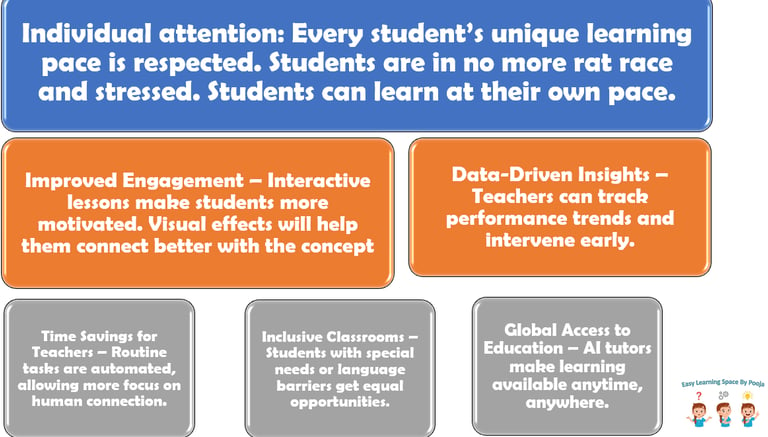

What can be the concerns faced by the usage of AI in the classroom
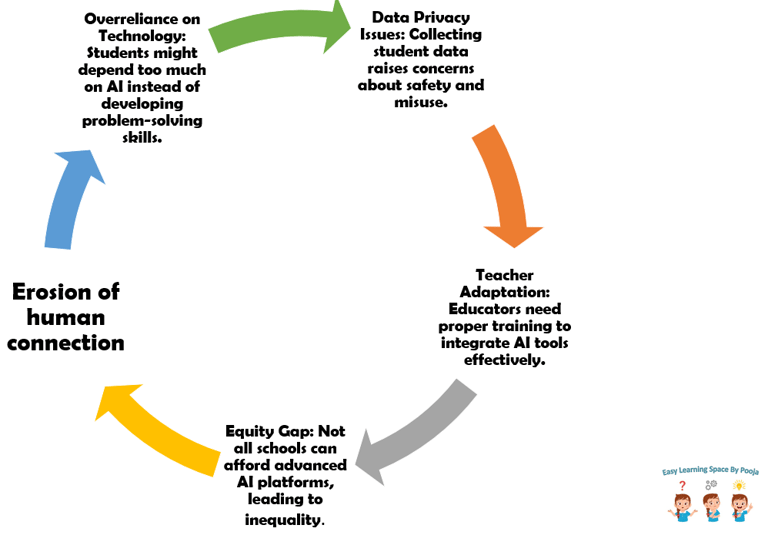

Address
Pooja
Bangalore
Contacts
easylearningspacebypooja@gmail.com
Subscribe to our newsletter
This blog is for educational purpose only
All the information on this website – www.easylearningspace.com – is published in good faith and for general educational and informational purposes only. I aim to provide helpful teaching tips and resources, but I make no warranties about the completeness, reliability, and accuracy of this information.
Any action you take upon the information you find on this website is strictly at your own risk. I will not be liable for any losses
